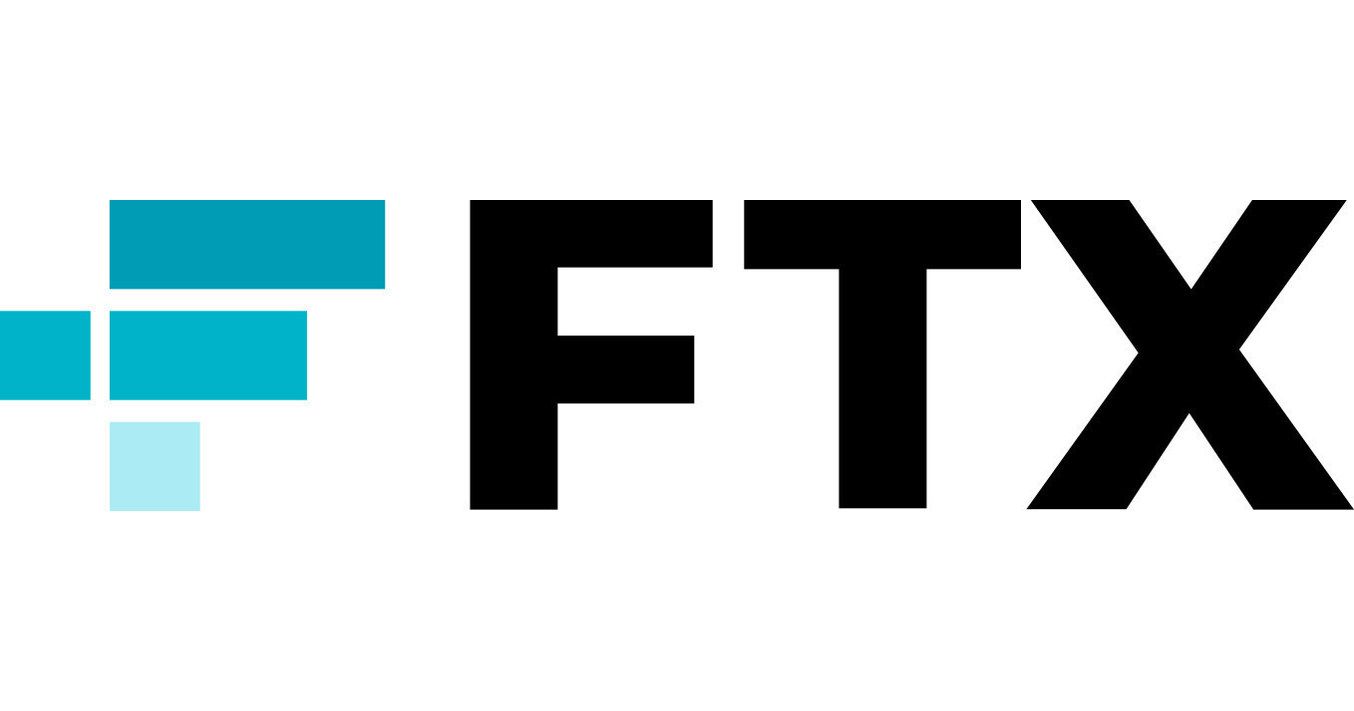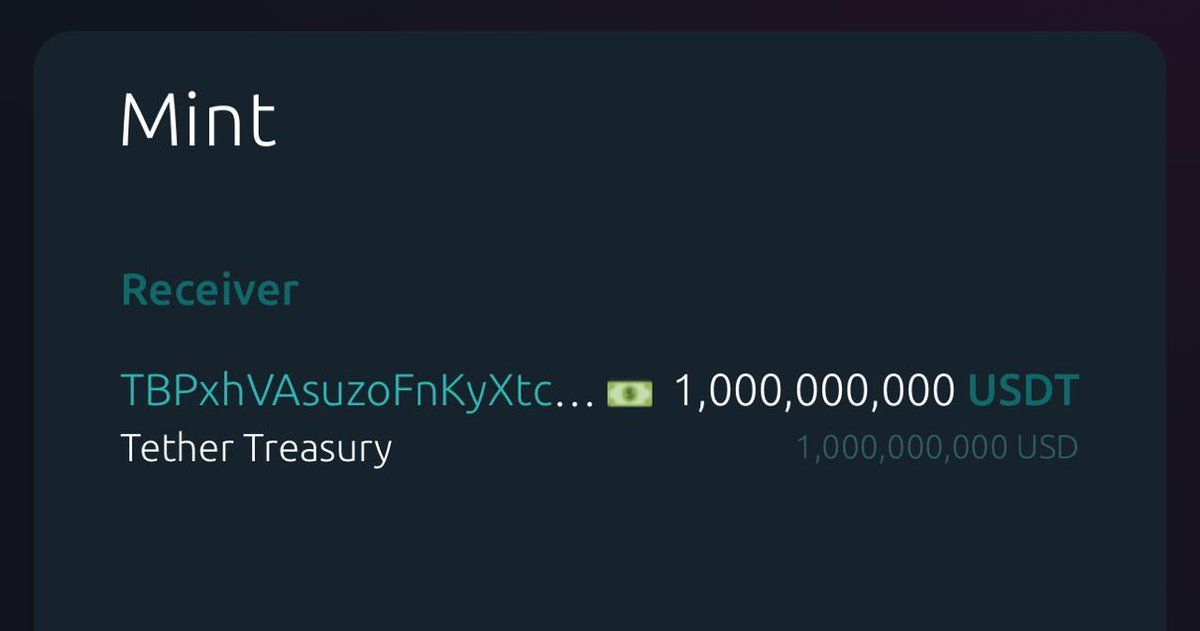Crypto Recap
May 18, 2025
Weekly Crypto Recap (May 12th - May 18th)
Tornado Cash Defence Says Prosecutors Misled Court on Crypto Mixer Laws

Background
Roman Storm’s legal team claims U.S. prosecutors withheld key information about the legal status of noncustodial crypto mixers — information that could weaken the case against the Tornado Cash co-founder. The defence cites a parallel case involving Samourai Wallet, where FinCEN reportedly stated such tools may not qualify as money transmitters under federal law.
Key Points
- Storm’s lawyers argue that prosecutors concealed FinCEN communications, including a 2023 call in which FinCEN allegedly said Samourai Wallet likely wasn’t a money transmitter due to its noncustodial design.
- Like Samourai, Tornado Cash is a noncustodial protocol, meaning users retain control over their funds — a detail the defence says should exempt both from money services business regulations.
- The withheld evidence could have altered court decisions, including the denial of a motion to dismiss and a rejected discovery request related to FinCEN.
- Although one charge was dropped after new DOJ guidance, Storm still faces counts of money laundering conspiracy and sanctions violations. His lawyers are seeking full disclosure of DOJ-FinCEN communications and related Samourai case files.
Key Takeaway
Storm’s defence is leveraging recent regulatory ambiguity to challenge the legal foundation of the case, arguing that Tornado Cash never operated as a money transmitter — and that the government knew it. The July trial now hinges on whether the court finds merit in this alleged omission.
Dogecoin (DOGE) Whales Accumulate 1 Billion DOGE Amid Critical Support Formation

Background
Dogecoin has shown notable stability around the $0.212 support level despite short-term price swings, as whale activity intensifies. Over the past month, large holders accumulated over 1 billion DOGE, bringing their total to nearly 26 billion — a signal of strong institutional interest at current price levels.
Key Points
- Whale accumulation surged past 1 billion DOGE in the last 30 days, suggesting confidence among large investors.
- Support formed at $0.212, with high-volume rebounds at this level confirming buying interest.
- Technical indicators suggest a bullish setup, with DOGE trading in a 4.3% range and potentially forming a bull flag pattern.
- Retail futures data remains neutral, indicating there is still room for growth before speculative froth sets in.
- Heavy volume spikes at $0.215–0.217 confirmed strong buyer momentum during key intraday sessions.
Key Takeaway
With whales quietly stacking and Dogecoin defending critical support, the meme coin may be gearing up for another leg higher — potentially targeting the $0.35 mark if the trend holds. For now, the $0.212–0.215 range remains a pivotal zone to watch.
Argentinian President Milei skips civil hearing as Libra case judge orders bank records unsealed

Background
The fallout from Argentina’s controversial Libra memecoin continues to deepen, as President Javier Milei now faces a widening legal probe. A federal judge has ordered his bank records — and those of his sister — to be unsealed as part of an investigation into the token’s promotion and sudden collapse.
Key Points
- Judge María Servini requested Argentina’s central bank unseal bank records of President Milei and his sister Karina, citing links to the Libra token co-founders.
- Milei did not attend or send legal representation to a scheduled civil mediation hearing filed by victims of the token collapse.
- The Libra token plummeted 90% in value hours after Milei’s endorsement, resulting in multi-million dollar losses for investors and triggering calls for impeachment.
- Authorities previously froze assets of Libra co-founders, while prosecutors now investigate footage of relatives allegedly withdrawing funds post-crash.
- Milei continues to deny wrongdoing, calling himself a tech enthusiast and claiming the promotion was not financial advice.
Key Takeaway
With both financial records and civil litigation unfolding, the Libra saga threatens to become a defining scandal of Milei’s presidency. The legal focus has now expanded from token founders to potential abuses of political influence.
Movement Labs and Mantra Scandal Are Shaking up Crypto Market-Making

Background
Two high-profile collapses — Movement Labs’ MOVE token and Mantra’s OM — are forcing a reckoning in the crypto market-making space. Hidden agreements, opaque token distributions, and sudden liquidations are highlighting structural weaknesses in how liquidity is managed across exchanges and OTC desks.
Key Points
- Market makers are demanding new standards of transparency after MOVE and OM suffered catastrophic losses, exposing hidden token allocations and undisclosed deals.
- Trust between project teams and liquidity providers has eroded, with firms like Woorton stating that full disclosure of side agreements and token economics is now a prerequisite.
- Secondary OTC sales and quiet unlock schedules have distorted price discovery, enabling insiders to offload tokens into illiquid markets with minimal oversight.
- The OM token plunged over 90% within hours, triggering liquidation cascades allegedly linked to unreported margin and leverage exposure.
- MOVE’s scandal included a suspended co-founder and delisting from major exchanges, after token flows and private market-making contracts raised governance red flags.
Key Takeaway
The crypto market-making model is undergoing a major reset. Forced to reckon with the fallout from poorly structured token launches, players are now pushing for a more standardized, transparent, and enforceable framework before risking capital — signaling a broader maturing of the industry.
Coinbase Data Breach Reignites Debate Over Crypto Security Models

Background
A recent data breach at Coinbase has exposed the fragility of centralized security in crypto and reignited discussion over the structural risks of CEXs versus DeFi protocols. The incident, which involved insider collusion and a $20 million extortion attempt, has prompted renewed scrutiny not only of Coinbase’s security, but also its reported user metrics, now under investigation by the SEC.
Key Points
- Coinbase confirmed attackers accessed sensitive customer data via insider assistance, including names, addresses, ID documents, and partial Social Security numbers.
- The exchange refused to pay a $20M ransom and pledged to reimburse affected users—about 1% of its customer base—targeted in related phishing attacks.
- Security experts warn this breach highlights single points of failure, calling for decentralized security architectures that distribute control and reduce reliance on human gatekeepers.
- DeFi protocols are not immune, with many still relying on centralized frontends, APIs, and bridges vulnerable to exploits—challenging the notion of true decentralization.
- Coinbase is also under SEC investigation over past claims of having over 100 million “verified users.” The company disclosed that this metric included anyone who verified their email or phone number, regardless of activity.
- Despite the controversies, Coinbase stock rose 8% and is now trading at $264, following news of its upcoming inclusion in the S&P 500.
Key Takeaway
The breach underscores a growing need to rethink crypto’s infrastructure—balancing user control, identity protection, and architectural decentralization across both CEX and DeFi ecosystems. As regulatory scrutiny intensifies, platforms must evolve security models not just to withstand threats—but to earn trust.
Alchemy Unveils Modular 'Codegen' Engine to Power 1-Click Web3 App Creation

Background
Alchemy has introduced a new AI-driven development engine, aiming to eliminate much of the friction developers face when building on-chain applications. The engine, called “Codegen,” uses user prompts to automatically generate code, frontend components, and even deploy smart contracts.
Key Points
- Codegen lets developers create functional Web3 apps from a text prompt, handling contract logic, user interface, and deployment.
- Alchemy says the product supports both Ethereum and Layer 2s including Base, Optimism, and Arbitrum, with plans to support Solana and ZK chains soon.
- Codegen builds on the success of Alchemy’s “Scaffold” platform, which it says enabled over 250,000 app prototypes to be launched last year.
- The company aims to lower the barrier to entry for Web3 developers and reduce build time from days to minutes.
- Developers can also use prebuilt templates and integrate third-party APIs and on-chain data sources like The Graph, Moralis, and Chainlink.
- Alchemy is positioning itself as the “Vercel for crypto,” offering an end-to-end platform that includes hosting, backend infra, and now smart contract deployment tools.
Key Takeaway
With Codegen, Alchemy is making a play to become Web3’s dominant developer platform—automating complexity to help crypto apps scale like Web2 startups.
Cobie joins crypto investment firm Paradigm as advisor

Background:
Jordan Fish, better known as Cobie, has officially joined Paradigm as an advisor. Known for his outspoken presence in the crypto space and his fundraising platform Echo, Cobie will now be contributing to Paradigm’s public market and liquid fund strategies.
Key Points:
- Cobie founded Echo, a platform giving retail users access to early-stage project rounds on VC-like terms.
- Echo has supported fundraising for MegaETH, Initia, Ethena, and Fogo.
- He will advise Paradigm’s public market/liquid fund, a role he announced on X.
- Matt Huang, Paradigm cofounder, welcomed Cobie, hinting at a possible UpOnly return.
- Cobie joins a roster that includes ZachXBT and samczsun, who serve in advisory and research roles respectively.
Key Takeaway:
Cobie’s addition to Paradigm highlights the firm's strategic push into public markets and community-driven projects, further blending research, influence, and capital in crypto venture.
PumpFun Founder Teases Community Takeover Feature for Revenue Sharing

Background
PumpFun, the leading Solana-based memecoin launchpad, is preparing to introduce a “Community Takeover” (CTO) feature that would allow communities to earn trading fees from abandoned tokens. The announcement follows the platform’s rollout of a new creator revenue sharing model on May 12.
Key Points
- PumpFun now shares 50% of trading fees with coin creators via its native DEX, PumpSwap
- A new CTO feature will let communities earn the creator’s share if original developers exit
- The update aims to fix a core flaw—inactive creators still earning fees while communities maintain the project
- The feature was teased by founder Alon Cohen in response to growing community feedback
- PumpFun has earned over $700 million in fees since March 2024 but now faces pressure from rising launchpad competitors like Believe and Let’s Bonk
Key Takeaway
PumpFun’s new CTO feature marks a shift toward rewarding active communities rather than absentee creators, potentially reshaping the memecoin ecosystem on Solana as the platform fights to defend its dominance.
Abraxas Capital Holds 278,000 ETH Worth $655M, Withdraws From Binance, Cuts Bitcoin Exposure by $150M

Background
Abraxas Capital has made a significant strategic shift by increasing its Ethereum holdings while cutting back on Bitcoin exposure. The move suggests growing institutional confidence in ETH as the firm consolidates its position.
Key Points
- Abraxas now holds 278,639 ETH, valued at approximately $655 million
- The ETH was accumulated at an average price of $2,350, with an unrealized gain of $77 million
- In the last 7 hours, the firm withdrew 19,834 ETH (worth $51.58M) from Binance
- Since May 7, all ETH holdings have been withdrawn from exchanges, indicating long-term holding intentions
- The firm also reduced BTC exposure by $150 million, pivoting further toward Ethereum
Key Takeaway
Abraxas Capital’s aggressive Ethereum accumulation and Bitcoin reduction highlight a notable shift in institutional crypto allocation strategies—favoring ETH amid evolving market narratives around scalability, staking, and utility.
FTX to Distribute Over $5 Billion to Creditors in May

Background
FTX will begin distributing over $5 billion to creditors on May 30, marking the second phase of its bankruptcy repayment plan. The process follows nearly three years of recovery efforts and reflects significant progress in resolving one of crypto’s most high-profile collapses.
Key Points
- The second wave of distributions will start May 30, with over $5 billion in recovered funds to be disbursed
- Creditors will receive between 54% and 120% of their claims, depending on classification
- Class 5 creditors (including Alameda lenders and vendors) will get 54%–72% of their claims
- Small unsecured creditors will receive up to 61%, while inter-company interests will be repaid at 120%
- BitGo and Kraken will handle payouts, expected to arrive within 1–3 business days after launch
- The plan builds on an earlier phase where over $1 billion was paid out to smaller claimants in February
- Over 90% of claims have already been processed, according to the FTX Recovery Trust
- The effort coincides with a broader pro-crypto shift under the Trump administration, including ETF approvals and relaxed SEC scrutiny
Key Takeaway
The $5 billion repayment marks a major milestone in the FTX saga and signals new momentum for creditor recovery in a regulatory environment increasingly favorable to crypto.
Kidnap Attempt on Crypto CEO's Family Sparks Security Concerns in France

Background
A failed kidnapping in Paris targeting the daughter and grandson of Paymium’s CEO has intensified concerns over the safety of crypto entrepreneurs in France. The incident adds to a growing trend of high-profile crypto-related abductions in the country.
Key Points
- Three masked attackers attempted to abduct the daughter and grandson of Paymium’s CEO in Paris
- The attack was thwarted by a shop owner using a fire extinguisher; the suspects fled in vans
- The incident follows multiple violent kidnappings, including the Ledger co-founder and the father of a crypto millionaire
- Victims in past cases were mutilated, with fingers severed as part of ransom tactics
- French Interior Minister Bruno Retailleau plans to meet with crypto entrepreneurs to address safety measures
- The Paris prosecutor’s office has launched a formal investigation
- Chainalysis CEO Jonathan Levin emphasized that ransom payments are traceable, countering the belief in anonymous crypto payouts
Key Takeaway
As crypto wealth draws increasing criminal attention, France is being forced to confront a surge in violent attacks targeting industry figures. Authorities are under pressure to provide stronger protections for the country’s growing Web3 elite.
Mastercard and MoonPay Launch Crypto Payments for 1.54 Billion Users

Background
Mastercard has partnered with crypto infrastructure provider MoonPay to enable Bitcoin, USDC, and USDT payments across its vast network. The initiative aims to bring crypto payments to 1.54 billion users and 150 million merchants globally, signaling a major leap in mainstream crypto adoption.
Key Points
- Mastercard and MoonPay will allow Bitcoin and stablecoin payments (USDC & USDT) to be used at 150 million merchants
- Transactions will be automatically converted to fiat at checkout using infrastructure from MoonPay’s acquisition of Iron
- New stablecoin-powered virtual Mastercards will be made available to crypto wallets
- This move expands on Mastercard’s recent crypto initiatives with OKX, Nuvei, and Circle
- Mastercard is ramping up efforts to compete with Visa, which is piloting similar services in Latin America
- Use cases include cross-border payments, the creator economy, and remittances
Key Takeaway
Mastercard’s collaboration with MoonPay marks a major milestone in crypto-fintech convergence, extending crypto utility to billions through seamless payments—just as the stablecoin wars heat up between legacy giants.
MetaMask Explores Native Token, Confirms Solana Integration

Background
MetaMask is weighing the launch of a native token to support its long-term decentralization goals, according to co-founder Dan Finlay. While no final decision has been made, the move would align with Consensys’ broader strategy. Meanwhile, native support for Solana will roll out this month.
Key Points
- MetaMask is considering launching a native token, but no commitment has been made
- The token would support progressive decentralization across Consensys products
- MetaMask will add native Solana ($SOL) support in May
- This marks a significant step toward multi-chain interoperability for the leading Web3 wallet
- Solana users will soon be able to access MetaMask features without third-party plugins
Key Takeaway
As MetaMask pushes toward greater decentralization and cross-chain access, the potential launch of a native token and the addition of Solana reflect its evolving strategy to stay relevant in a rapidly diversifying crypto ecosystem.
Wintermute Opens NYC Office and Hires Policy Veteran Ron Hammond

Background
Crypto market maker Wintermute is establishing its U.S. headquarters in New York City, marking its first domestic expansion amid a shifting regulatory climate. The firm also hired former Blockchain Association executive Ron Hammond as head of policy and advocacy.
Key Points
- Wintermute’s U.S. headquarters will open June 1 in downtown Manhattan
- Ron Hammond, ex–Blockchain Association and Capitol Hill staffer, will lead U.S. policy efforts
- CEO Evgeny Gaevoy cited the friendlier regulatory stance under the Trump administration as key motivation
- The firm aims to accelerate its U.S. presence amid renewed institutional and policy engagement
- Other firms, including OKX and Nexo, are also expanding into the U.S. market
- Hammond brings extensive experience in crypto legislation and government relations
Key Takeaway
Wintermute’s U.S. expansion and strategic hire signal a broader shift: as Washington turns more crypto-friendly, global players are planting flags and pushing for deeper influence in the world’s largest financial market.
Tether Mints $1 Billion USDT, Circulating Supply Tops $151 Billion on TRON

Background
Tether has minted another $1 billion worth of USDT at its treasury, pushing the circulating supply of its stablecoin on the TRON network past the $151 billion mark. The move underscores Tether’s continued dominance in the stablecoin sector.
Key Points
- $1 billion USDT was minted at Tether’s treasury, according to on-chain data
- The TRON network now hosts over $151 billion in USDT
- The issuance is part of Tether’s routine inventory replenishment for future issuance
- This minting reflects growing demand for USDT, particularly on TRON due to its low fees
- Tether remains the largest stablecoin issuer, with USDT supply far exceeding competitors
Key Takeaway
Tether’s $1B mint reaffirms its position as the liquidity backbone of crypto markets, with TRON continuing to lead in low-cost USDT transactions as demand for stablecoins shows no signs of slowing.
Sonic Labs Wins Court Order to Liquidate Multichain After $210M Exploit

Background
Sonic Labs, formerly Fantom Foundation, has received a Singapore High Court ruling authorizing the liquidation of Multichain Foundation. The move follows a major exploit in 2023 that saw over $210 million drained from the Multichain protocol, with Sonic Labs incurring roughly a third of the total losses.
Key Points
- The High Court of Singapore approved Sonic Labs’ petition to wind up Multichain, appointing KPMG Singapore as joint liquidators
- The liquidation follows Sonic Labs’ legal victory over Multichain for breach of contract and fraudulent misrepresentation
- Sonic Labs lost approximately $70 million in the July 2023 exploit that led to Multichain’s shutdown
- Attempts to engage with Multichain were ignored, and its CEO Zhaojun He was arrested in China before the exploit
- Sonic Labs’ CEO emphasized that liquidation aims to recover funds for affected users across the ecosystem
- The court ruling may open the door for other victims to file claims and seek compensation
Key Takeaway
The court-ordered liquidation of Multichain marks a rare enforcement success in crypto litigation, signaling that legal channels may yet offer recourse for victims of DeFi exploits—especially when projects go dark.
Yuga Labs Sells CryptoPunks to Nonprofit Infinite Node Foundation

Background
Yuga Labs has sold the iconic CryptoPunks collection to the newly formed Infinite Node Foundation, marking a major shift in stewardship of one of the most historically significant NFT projects. The move allows Yuga to refocus while positioning CryptoPunks for cultural preservation through nonprofit curation.
Key Points
- Yuga Labs offloaded CryptoPunks to the Infinite Node Foundation, reportedly for $20 million
- Node is a new nonprofit with $25 million in funding, backed by Ribbit Capital’s Micky Malka and Becky Kleiner
- The foundation will create a 12,000 sq. ft. permanent gallery in Palo Alto to exhibit all 10,000 Punks
- Node’s mission is to preserve and elevate digital art, beginning with CryptoPunks
- The advisory board includes Yuga’s co-founder, Art Blocks’ founder, and Larva Labs’ founders
- Yuga has recently sold off several properties, including Meebits and HV-MTL, to streamline its focus
- CryptoPunks are often credited with inspiring the ERC-721 standard and are considered foundational to onchain NFT culture
Key Takeaway
With CryptoPunks now in nonprofit hands, Yuga steps back from digital art stewardship while a new institution aims to legitimize and preserve NFTs in physical cultural spaces—starting with the collection that started it all.
BlackRock Files for Ethereum In-Kind Redemptions as ETH Jumps 42%

Background
BlackRock has submitted a filing for Ethereum in-kind redemptions, signaling strategic positioning amid SEC talks around ETH staking in spot ETFs. This move comes as Ethereum breaks out of a multi-month downtrend with strong price action, surpassing Bitcoin in both momentum and trading volume.
Key Points
- BlackRock filed for ETH in-kind redemptions, aligning with ongoing SEC discussions on staking inclusion in ETFs
- Ethereum surged 42% in a week, outperforming Bitcoin, which held around $105,000
- Bitcoin ETFs saw $867M inflows, while Ethereum ETFs lagged with only $1.5M — despite ETH’s stronger rally
- In the last 24 hours: ETH ETFs saw $13.37M in inflows, while BTC ETFs recorded $96.14M in outflows
- Exchange withdrawals of 324,000 ETH, with 180,000+ moved into staking, reflect growing long-term conviction
- Abraxis borrowed $240M USDT to stake 211,000 ETH; a whale swapped 200 wBTC for 7,900 ETH
- The rally is supported by the Pectra upgrade and a shift in spot demand, with ETH trading volume now outpacing BTC
Key Takeaway
As ETH outshines BTC in price action and on-chain conviction, BlackRock’s ETF positioning and growing staking flows suggest Ethereum may be entering a new phase of institutional legitimacy—staking and all.
Trader Turns $332 Into $190K on Gooncoin as Solana Meme Season Returns

Background
A Solana trader made headlines after turning a $332 buy-in into nearly $190,000 within 24 hours by riding the explosive launch of Gooncoin. The token, spawned via Believe App’s Launch Coin feature, is the latest to surge as Solana’s meme coin frenzy reignites.
Key Points
- Trader “BdjSZ” turned 1.97 SOL (~$332) into $190,000 on Gooncoin in less than a day
- Gooncoin launched via Believe App’s X-based token creator, spiking 70,000% to a $54.6M market cap
- Several wallets turned <$500 investments into 5–6 figure profits, per DEX Screener data
- Gooncoin’s rise follows the success of NOODLE, another viral Believe-backed token
- Solana meme coins like $WIF (+117%), $PNUT (+189%), and $MOODENG (+762%) are also surging
- Believe App, rebranded from Clout.me, aims to disrupt venture funding through community token launches
Key Takeaway
With micro-cap meme coins like Gooncoin minting six-figure profits overnight, Solana’s degenerate energy is back—and Believe App may be quietly reshaping the launchpad game one viral token at a time.
Robinhood Acquires WonderFi for $179M to Expand Into Canadian Crypto Market

Background
Robinhood is entering Canada with the acquisition of WonderFi, a major crypto player behind Bitbuy and Coinsquare. The $178.98 million deal boosts Robinhood’s global crypto ambitions and adds to growing M&A momentum amid a friendlier U.S. regulatory climate.
Key Points
- Robinhood is acquiring WonderFi for $178.98 million in cash, valuing shares at a 41% premium
- WonderFi owns Bitbuy and Coinsquare, two of Canada’s top crypto trading platforms
- The acquisition gives Robinhood direct entry into the Canadian market and expands its crypto footprint
- Trading volume on WonderFi rose 28% to C$3.57 billion in 2024, signaling strong platform activity
- The move follows Robinhood’s Bitstamp acquisition and adds pressure on rivals like Coinbase and Wealthsimple
- WonderFi CEO Dean Skurka and Robinhood Crypto lead Johann Kerbrat are both speaking at Consensus Toronto
- The deal comes amid a wave of crypto M&A activity fueled by Trump’s pro-crypto regulatory stance
Key Takeaway
Robinhood’s purchase of WonderFi is a strategic play for Canadian market share and crypto credibility, further signaling that the brokerage is going all-in on global digital asset expansion as regulatory winds shift in its favor.